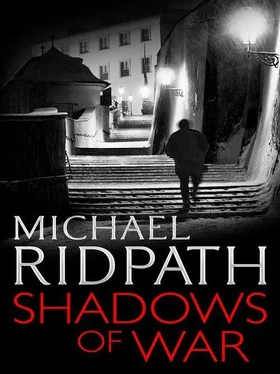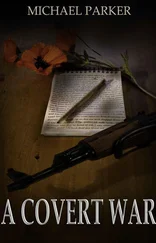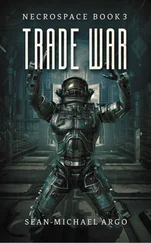Conrad repeated to the Foreign Secretary what he had told the Prime Minister. Halifax listened closely, his face registering ever-deepening shock. Afterwards he asked more or less the same questions as Churchill had.
‘I find this very hard to believe,’ he said, when Conrad had finished.
‘Do you?’ said Conrad.
The lines in Halifax’s long face deepened. ‘Maybe not,’ he said. He stood up and went to the window, which overlooked the Thames. He spoke with his back to Conrad. ‘I find your father’s actions particularly disappointing. I know him… I knew him well, most of his life. We were at Eton together.’
‘I know,’ said Conrad.
‘I’m sorry about what happened to him. I would have said he was a good man, a great man.’
‘Except for this,’ said Conrad.
‘Yes,’ said Halifax. ‘You know we might lose this war, de Lancey?’
‘Yes,’ said Conrad. ‘But isn’t it better to lose it on the battlefield or in the Channel or in the air than in the back corridors of Westminster?’
‘That’s what the Prime Minister thinks,’ said Halifax. He shook his head. ‘What they are up to is treason pure and simple. I cannot be part of it.’
‘No, sir,’ said Conrad.
The War Cabinet met again at seven o’clock. Churchill told them of the enthusiastic reaction of the Outer Cabinet to his proposal to fight on. He reiterated that he was not in favour of making an approach to Germany at the present time.
He turned to his Foreign Secretary. Lord Halifax looked thoughtful. But he said nothing.
The conversation turned to whether and how to make an appeal to the United States.
It was decided. Britain would fight on.
Conrad stood in the square and turned back to look up at the Houses of Parliament, the place where his father had spent so much of his time over the previous ten years, and, if France fell, the one place where democracy would live on in Europe. Conrad had done all he could — he had persuaded Churchill and he had persuaded Halifax. It was up to them to deal with Alston and his co-conspirators and to fight the war to its end.
Conrad knew there was a good chance that the end might mean defeat for Britain. But after all the turmoil and confusion of the previous year, the prevarications of the phoney war, the loss of his sister and his father, and the imprisonment of Anneliese, there was one thing of which he was certain: it was a war that had to be fought and he had to fight it.
Hôtel du Palais, Biarritz
‘Dave, what did that Veronica woman say to you, when you were outside on the balcony?’
The Duke of Windsor glanced at his wife, who was trying on earrings for dinner. They were in the bedroom of their suite. She had made a point of not asking him about Veronica de Lancey, but she couldn’t resist any longer.
‘Oh, it was nothing, darling,’ said the duke.
That didn’t satisfy her. He should have known it wouldn’t. ‘It can’t have been nothing! Did you see how fast she bolted?’
The duke sighed. Time for a little lie. ‘You know how these young women can be? You would think that now we are married and with you actually sitting inside, she would have known better. It’s extraordinary! So I sent her away with a flea in her ear.’
Wallis’s eyes flicked up from the mirror. The duke knew she was considering whether Veronica de Lancey might be a ‘good friend’ from the old days. But she wasn’t, and Wallis knew it. She let it drop.
The duke left the bedroom and moved through to the sitting room. He lit his pipe and went out on to the balcony to watch the sea. He fished out the cable he had received from Sir Henry Alston in London the night before and quickly reread it.
Then he struck a match and lit the corner of the telegram, letting the ashes scatter in the soft Atlantic breeze.
Summer 1940
It was seven o’clock in the morning when the bell rang in Alston’s flat in London. He pulled on a dressing gown and went downstairs to answer it. He was still drunk from the copious amounts of whisky he had put away the night before when he had heard that Constance had been killed a week earlier in France, together with Lord Oakford.
There were four policemen at the door: two detectives and two uniformed constables. They were arresting him under Defence Regulation 18B. They asked him to get dressed, pack a few things and accompany them.
Alston wasn’t surprised. He invited them in, and then went through to his bedroom. Before the constable following him could stop him, he had grabbed the revolver which he kept in his bedside drawer, turned it to his temple and pulled the trigger.
Hundreds of other men and women were rounded up that morning and in the following month, including many members of the Right Club and the British Union of Fascists. But none of the senior members of the government, the armed forces or the civil service whom Alston had courted were imprisoned, nor the dukes and other aristocrats who had sympathized with him and Freddie.
Major McCaigue was helpful in identifying who needed to be kept under observation; it turned out that he had cultivated useful sources within Alston’s conspiracy. He stuck by his assessment that Conrad de Lancey was a Soviet spy and by his decision to send de Lancey’s ex-wife to keep tabs on him. Although de Lancey had Churchill’s support, McCaigue ensured the SIS kept an open file on him. A reliable man in a crisis, Major McCaigue.
A fear of a ‘fifth column’ of foreign spies and British Nazi supporters swept the nation, a fear shared wholeheartedly by the Prime Minister. In addition to the Britons suspected of sympathy with the Nazis, thousands of Germans and Italians were interned, including most of the Jews who had escaped to Britain from Germany and Austria. Anneliese was released from Holloway, only to be rearrested with her parents a week later. She and her mother were sent to Huyton near Liverpool, and her father was despatched to the Isle of Man.
Theo returned to Germany from his mission in Spain. Joachim von Ribbentrop mourned the loss of his star protégé, Otto Langebrück, on a dangerous mission in enemy territory. Intelligence from the Abwehr suggested that British spies had been responsible for Langebrück’s death in an attempt to keep the Duke of Windsor away from Britain.
Theo’s intelligence duties switched to Britain, which was natural given his education there. He read with great interest Abwehr intelligence reports of the collapse of Alston’s plans and of his suicide, and that the Duke of Windsor had decided to drive to Antibes from Biarritz instead of returning to England. With the defeat of France, invasion of Britain was becoming a real danger. But Admiral Canaris had Theo working on exaggerated reports from southern England of the number of British divisions available and the strength of their secret fortifications: armoured cars lurking in the bunkers of the golf courses of St Leonards, a catacomb of gun emplacements underneath the hill at Rye. These the admiral passed on to Hitler with gloomy assessments of the likely failure of a German invasion attempt. Theo was pleased to see his chief gradually moving towards his own position on where his true loyalty to his country should lie.
The Duke and Duchess of Windsor travelled first to Antibes, and then, when France fell, on to Madrid and Lisbon. Concerned that his inclinations were known to be pro-Nazi and that he might become a focus for intrigue, Churchill forbade the duke from returning to England, and ordered him to take up a position as Governor General of the Bahamas, well out of the way.
Joachim von Ribbentrop sent Sturmbannführer Schellenberg to Lisbon to try to persuade the duke to remain in Europe, or if that failed, to kidnap him. Schellenberg offered the duke fifty million Swiss francs, and frightened him with claims that the British secret service was planning to assassinate him on the ship to the Bahamas. Echoing Venlo, Schellenberg suggested that the duke and duchess go on a shooting holiday at a forest on the Portuguese border, from where they could be easily spirited into Spain. They could wait there until they were needed in England.
Читать дальше












